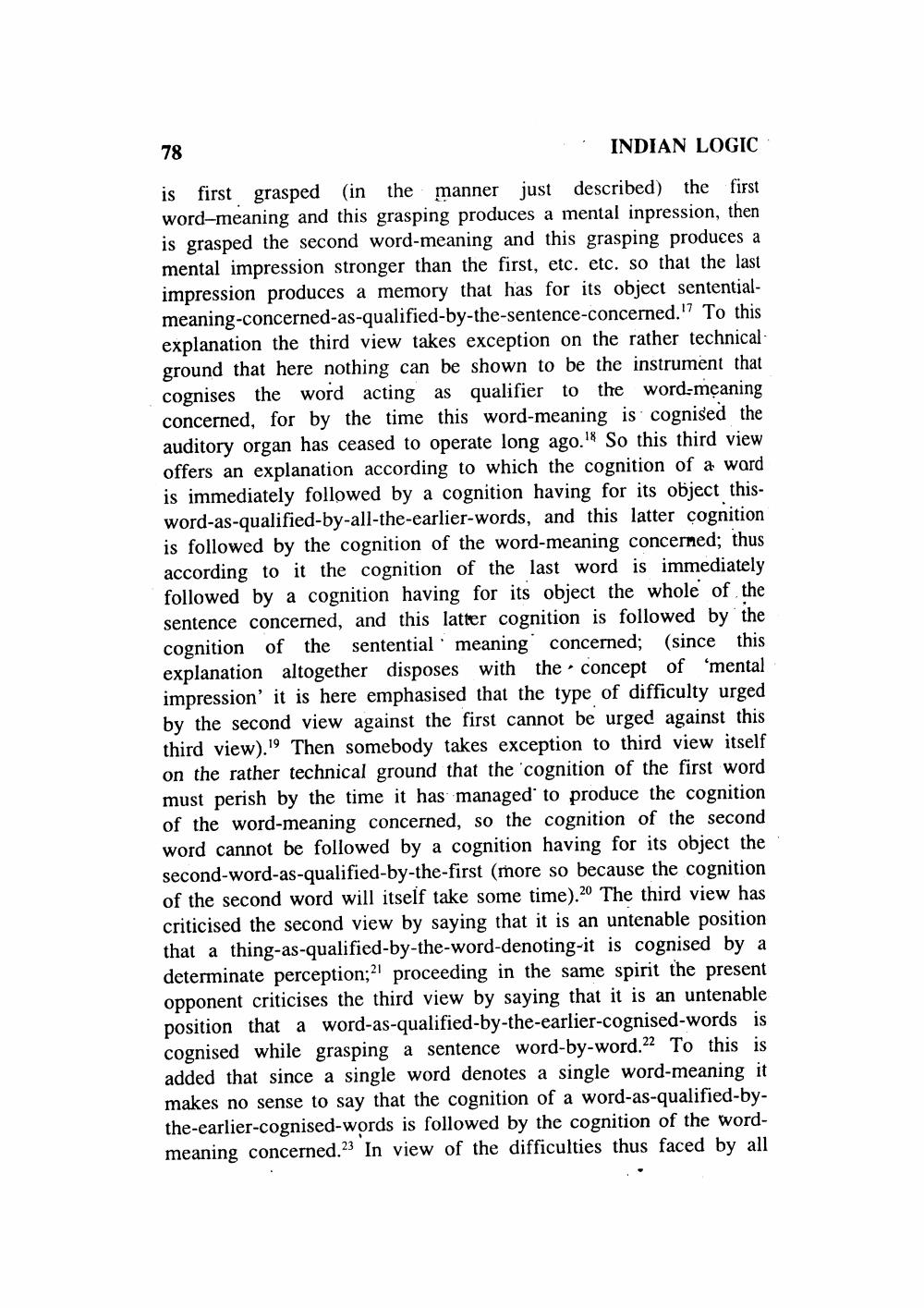________________
78
INDIAN LOGIC
is first grasped (in the manner just described) the first word-meaning and this grasping produces a mental inpression, then is grasped the second word-meaning and this grasping produces a mental impression stronger than the first, etc. etc. so that the last impression produces a memory that has for its object sententialmeaning-concerned-as-qualified-by-the-sentence-concerned."7 To this explanation the third view takes exception on the rather technical ground that here nothing can be shown to be the instrument that cognises the word acting as qualifier to the word-meaning concerned, for by the time this word-meaning is cognised the auditory organ has ceased to operate long ago.' So this third view offers an explanation according to which the cognition of a ward is immediately followed by a cognition having for its object thisword-as-qualified-by-all-the-earlier-words, and this latter cognition is followed by the cognition of the word-meaning concerned; thus according to it the cognition of the last word is immediately followed by a cognition having for its object the whole of the sentence concerned, and this latter cognition is followed by the cognition of the sentential' meaning concerned; (since this explanation altogether disposes with the concept of 'mental impression' it is here emphasised that the type of difficulty urged by the second view against the first cannot be urged against this third view)." Then somebody takes exception to third view itself on the rather technical ground that the cognition of the first word must perish by the time it has managed to produce the cognition of the word meaning concerned, so the cognition of the second word cannot be followed by a cognition having for its object the second-word-as-qualified-by-the-first (more so because the cognition of the second word will itself take some time).20 The third view has criticised the second view by saying that it is an untenable position that a thing-as-qualified-by-the-word-denoting-it is cognised by a determinate perception;21 proceeding in the same spirit the present opponent criticises the third view by saying that it is an untenable position that a word-as-qualified-by-the-earlier-cognised-words is cognised while grasping a sentence word-by-word.22 To this is added that since a single word denotes a single word-meaning it makes no sense to say that the cognition of a word-as-qualified-bythe-earlier-cognised-words is followed by the cognition of the wordmeaning concerned.23 In view of the difficulties thus faced by all




